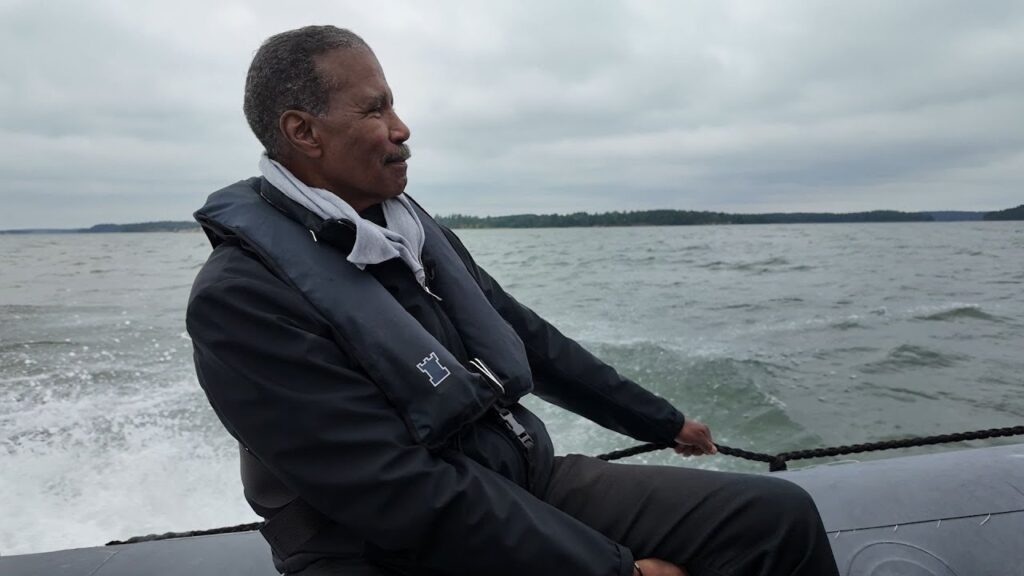The second segment of 60 Minutes’ 58th season premiere, titled The Mystery of the Eagle S, investigates a troubling incident in the Baltic Sea involving the Russian-owned oil tanker, Eagle S. Correspondent Bill Whitaker reports from Finland and surrounding waters, uncovering how the vessel’s actions disrupted critical infrastructure and raised alarms about potential hybrid warfare in the region.
The Incident in the Baltic Sea
The Eagle S, part of a fleet often described as Russia’s shadow or “phantom” fleet, dragged its anchor in the Baltic Sea, causing undersea internet and electricity cables linking Finland and Estonia to snap. The damage left parts of the region temporarily disconnected, creating both logistical challenges and broader concerns about security. Initially, authorities treated the incident as a maritime accident, but further investigation suggested a more deliberate pattern of interference.
The segment explores how this incident revealed vulnerabilities in undersea infrastructure, which is essential for both civilian and military communications. Modern societies rely heavily on these cables, yet their exposure to sabotage or accidents often goes unnoticed until a crisis occurs. The Eagle S incident underscores the fragility of global networks and the strategic importance of the Baltic region in geopolitical terms.
Suspicions of Russian Hybrid Warfare
Whitaker’s reporting indicates that the Eagle S may not have been an isolated case. Investigators and military analysts suspect that similar incidents could be part of Russian hybrid warfare strategies aimed at destabilizing critical infrastructure without triggering open conflict. Hybrid warfare involves a combination of conventional military force, cyberattacks, and covert operations to achieve strategic objectives while avoiding direct confrontation.
The segment details NATO’s response, including the launch of the Baltic Sentry mission, a defensive monitoring operation designed to track undersea activity and prevent further disruptions. Experts warn that such operations are increasingly necessary as geopolitical tensions rise and adversaries develop unconventional methods to challenge infrastructure security.
Undersea Infrastructure and Global Implications
Undersea cables carry the majority of the world’s internet traffic and energy transmissions, making them potential targets for state and non-state actors. The Eagle S incident draws attention to how vulnerable this critical infrastructure can be, highlighting the intersection of maritime navigation, technology, and security policy. Whitaker interviews specialists who explain how damage to a single cable can affect international communications, trade, and even national security.
By reporting from the Baltic Sea and Finland, the segment emphasizes both the technical and geopolitical aspects of the story. It illustrates the challenges of defending infrastructure across international waters and the complexities involved in attributing responsibility when incidents appear accidental or are carried out by shadow fleets.
The Broader Context of Maritime Security
The investigation into the Eagle S serves as a reminder that modern warfare increasingly includes unconventional tactics targeting infrastructure rather than traditional battlegrounds. With growing reliance on digital connectivity and cross-border energy networks, incidents like this have ramifications far beyond the immediate region.
The Mystery of the Eagle S highlights the importance of vigilance, international cooperation, and preparedness in safeguarding critical infrastructure. Whitaker’s reporting combines investigative journalism with expert analysis to provide viewers with a detailed understanding of the threats, responses, and stakes involved in this unfolding story of maritime intrigue and technological vulnerability.
More Feature Articles
- “He’s Right Behind You”: 20/20’s Season Premiere on Kristil Krug Homicide September 26 2025
- “The Phantom”: Dateline Reports on Kristil Krug Homicide September 26 2025
- “The Boy Who Killed His Twin”: 48 Hours Reports on Chilling Case of Benjamin Elliott September 27 2025
- 48 Hours Preview: “Coached to Kill” Airs Saturday September 27 at 9:30 PM
- 60 Minutes Reports on “A Lonely Voice”, “The Mystery of the Eagle S” & “Dana White” September 28 2025

